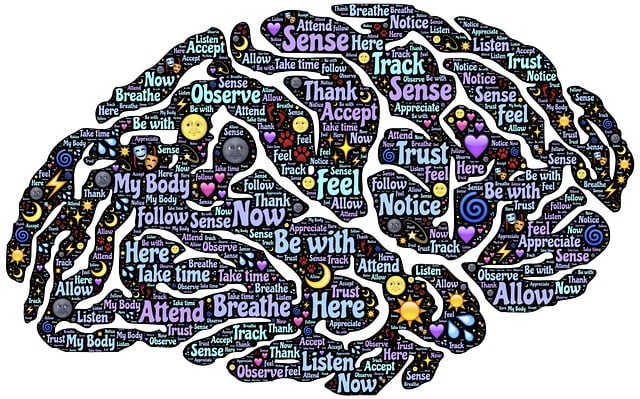Substance abuse, fueled by personal, social, and environmental factors, poses risks to individuals, families, communities, and society. Early identification of signs and risk factors is crucial through public awareness campaigns and healthcare provider training addressing diverse patient needs. Arvada Neuro Disorders Therapy emphasizes a holistic approach, combining evidence-based treatments with personalized care for mental and physical health, aiming at root cause resolution. Lifestyle changes like mindfulness meditation, therapy, exercise, diet, and social connections enhance emotional well-being and resilience against addiction. Local support groups and community resources further bolster recovery efforts by offering tailored interventions and risk management plans under professional guidance.
Substance abuse poses significant risks, impacting physical and mental health, relationships, and overall well-being. Understanding these dangers is the first step towards prevention. This article explores comprehensive strategies for risk reduction, including early sign identification and risk factor management. We delve into evidence-based approaches like Arvada Neuro Disorders Therapy, highlighting its effectiveness in treating addiction. Additionally, lifestyle changes, support networks, and community resources are discussed as vital tools in mitigating substance abuse and fostering recovery.
- Understanding Substance Abuse and Its Risks
- Identifying Early Signs and Risk Factors
- Arvada Neuro Disorders Therapy: A Comprehensive Approach
- Lifestyle Changes for Mitigating Substance Abuse
- Support Networks and Community Resources
Understanding Substance Abuse and Its Risks

Substance abuse refers to the harmful use of drugs or alcohol, leading to a range of negative physical and mental health outcomes. It’s crucial to understand that substance abuse is a complex issue that can stem from various personal, social, and environmental factors. The risks associated with it are multifaceted, impacting not just the individual but also their family, community, and society at large. According to Arvada Neuro Disorders Therapy, underlying conditions like depression, anxiety, or trauma often contribute to substance abuse, highlighting the need for comprehensive treatment approaches that address these co-occurring disorders.
Public Awareness Campaigns Development and Healthcare Provider Cultural Competency Training play pivotal roles in mitigating risks. By educating individuals about the dangers of substance abuse and providing support systems, communities can foster confidence-boosting strategies to prevent or manage it. Additionally, training healthcare providers on cultural competency ensures that patients from diverse backgrounds receive tailored care, addressing unique challenges and barriers to treatment. These efforts collectively contribute to a more informed and supportive environment, crucial for effectively managing and reducing the risks associated with substance abuse.
Identifying Early Signs and Risk Factors

Recognizing the early signs and risk factors for substance abuse is a vital step in preventing and mitigating this issue. According to experts at Arvada Neuro Disorders Therapy, understanding behavioral changes and underlying mental health conditions can significantly alter an individual’s path. Many individuals struggling with addiction may exhibit withdrawal symptoms, noticeable mood swings, or increased isolation from social activities. Identifying these signs early on allows for timely intervention and support.
The presence of certain risk factors further complicates the situation. These include a history of mental illness, as substance abuse often co-occurs with conditions like depression or anxiety. Stigma reduction efforts play a crucial role in encouraging individuals to seek help without fear of judgment. Additionally, promoting emotional well-being through therapy and support groups can be transformative. Conflict resolution techniques taught within these programs equip individuals with healthy coping mechanisms, reducing the likelihood of turning to substances as a means of escape.
Arvada Neuro Disorders Therapy: A Comprehensive Approach

Arvada Neuro Disorders Therapy offers a comprehensive approach to addressing substance abuse issues by targeting both the mind and body. Their expert team combines evidence-based treatments with personalized care, recognizing that every individual’s journey to recovery is unique. Through various therapeutic modalities, they help clients explore and overcome underlying mental health conditions often linked to substance abuse, such as anxiety relief and trauma support services.
This holistic approach ensures that the root causes of addiction are addressed effectively. By integrating mental wellness strategies into the treatment plan, Arvada Neuro Disorders Therapy empowers individuals to build resilience, develop healthy coping mechanisms, and sustain long-term recovery. Their commitment to providing a safe and supportive environment fosters trust and encourages clients to embrace the transformative journey towards a substance-free life.
Lifestyle Changes for Mitigating Substance Abuse

Making significant lifestyle changes can be a powerful strategy to mitigate and reduce risks associated with substance abuse. This involves adopting healthier habits that promote overall well-being, particularly focusing on emotional stability and mental health. Techniques such as Mindfulness Meditation have proven effective in managing cravings and reducing stress, which are common triggers for substance misuse. Regular practice of mindfulness can help individuals cultivate a deeper sense of calm and present-moment awareness, thereby strengthening their resistance to cravings and relapses.
Additionally, prioritizing Emotional Well-being Promotion Techniques can significantly contribute to risk reduction. This includes seeking professional therapy, engaging in regular physical exercise, maintaining a balanced diet, and cultivating strong social connections. For instance, individuals struggling with substance abuse might benefit from Arvada Neuro Disorders Therapy, which offers specialized support tailored to addressing underlying mental health issues and brain chemistry imbalances. By integrating these lifestyle changes into their routine, individuals can enhance their Mental Health Awareness, foster resilience against addiction, and improve their overall quality of life.
Support Networks and Community Resources

Building a robust support network is a powerful tool in the battle against substance abuse. Connecting with like-minded individuals and accessing community resources can provide much-needed encouragement and guidance during recovery. Local support groups, for instance, offer a safe space to share experiences, gain insights, and forge lasting bonds. These connections can be especially beneficial for those navigating complex challenges like Arvada Neuro Disorders Therapy, where a strong support system can significantly enhance the effectiveness of treatment.
Furthermore, community resources such as mental health clinics and counseling centers play a crucial role in risk reduction strategies. They provide platforms for individuals to develop coping skills and improve self-esteem, which are essential components of managing addiction. Through specialized programs and tailored interventions, these resources enable individuals to create robust risk management plans, ensuring they have the tools needed to cope with triggers and maintain long-term recovery, especially when coupled with professional guidance from seasoned mental health practitioners.
Substance abuse is a complex issue, but understanding its risks and early signs empowers individuals to take proactive steps. By recognizing personal risk factors and adopting a comprehensive approach, such as the holistic methods offered by Arvada Neuro Disorders Therapy, people can navigate their journey towards recovery. Additionally, lifestyle changes, support networks, and community resources play pivotal roles in reducing substance abuse’s impact. Remember that with the right tools and mindset, mitigating these risks is achievable, paving the way for a healthier, more balanced life.












